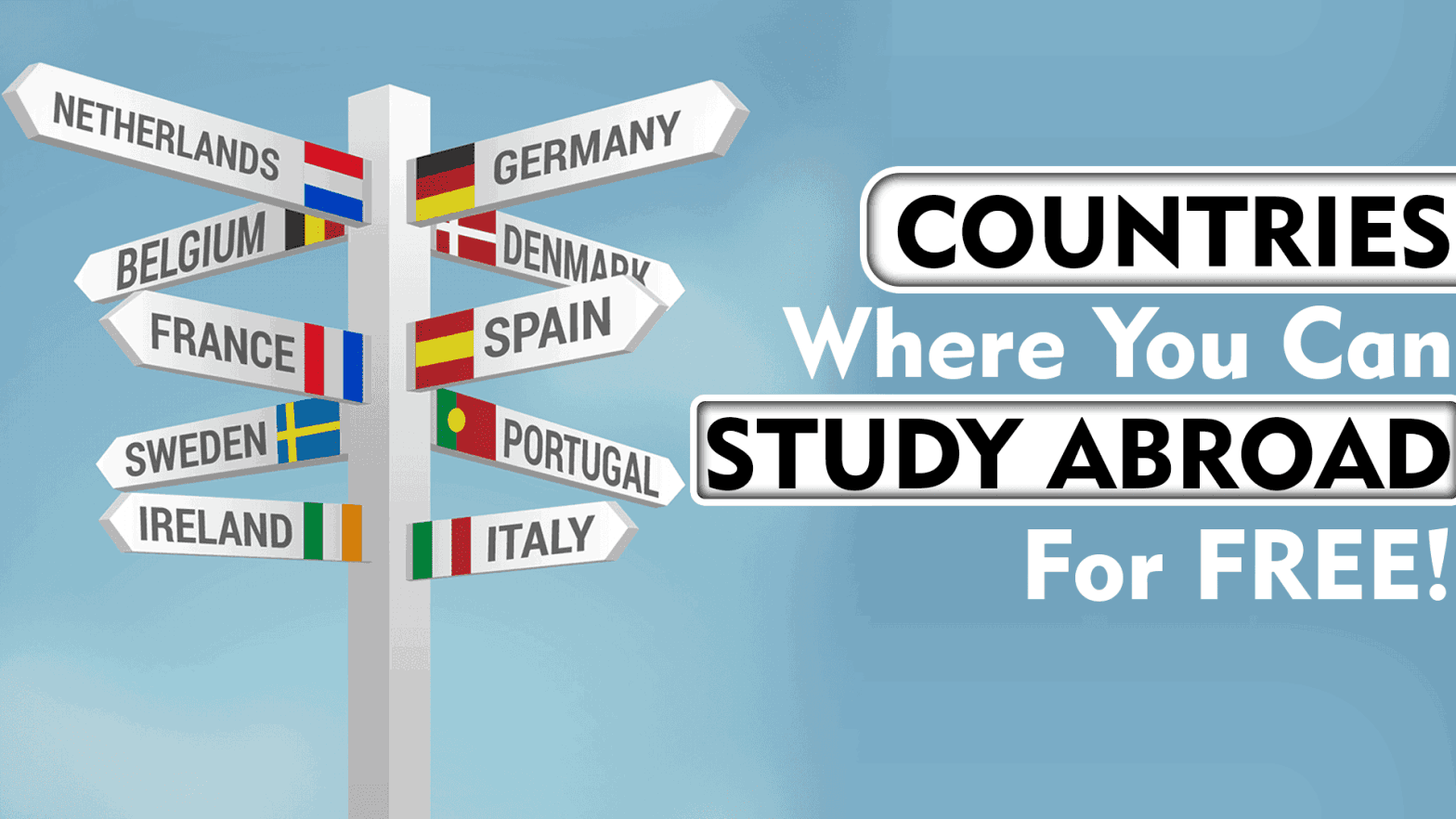| 
Going abroad to study is the dream of many Indian students
which is however hampered by the high expenses. There are other countries that
do not charge or charge a few pennies to international students including
Indian students. These destinations feel that education can be open to all
regardless of your origin or financial status.
In this blog post, we shall talk about the nations in which
students would study almost nothing or less cheaply than in India. We will see
the rules and what to expect and how to apply. Find yourself a middle-class
citizen or simply do not appreciate the idea of taking
a massive loan, and this guide can help you to get clear opportunities in order
to begin studying in a foreign country.
When you don't know how to initiate the process or seek help
in selecting the right university, the study abroad consultants in Hyderabad will
assist you in the whole process of admission and visa. They are also able to
assist in university scholarships and get in touch with some students who are
already studying abroad.
Germany
- Germany
is among the most suitable destination that an Indian student can pursue a
free education. Most postgraduate and majority of the undergraduate
programs are tuition-free in the public universities in this country.
- Some
of the courses such as Engineering, Computer Science, life sciences,
social sciences, etc are popular. Majority of the undergraduate
courses are in German but most of the master courses are offered in
English.
- You
require You should have a good academic background, have a valid
passport and also have a blocked bank account (Approx. 11,208 Euros to
cover the maintenance). Certain courses must need the knowledge of
German (at least B1 or B2).
- Students
are also allowed to do part-time work (120 full days or 240 half days in
one year). You may remain there after graduation and you are
allowed to search for a job within 18 months.
- Few
of the most preferred cities by international students include Berlin,
Munich, Frankfurt and Hamburg.
Norway
- In
Norway, public universities have free education to both local and foreign
students. There is however a high cost of living, so it should be planned
accordingly.
- English
Master programs are highly accessible; particularly in the Science,
Technology, and Education disciplines.
- You
are required to have a minimum of 13 years of education (1 year of college
after 12 th in India), an English proficiency test such as IELTS or TOEFL,
and academic transcripts.
- During
studies, you have permission to work 20 hours a week and on a full time
basis during holidays.
- Oslo
and Bergen are two cities accommodating students and having international
campuses as well as dynamic student unions.
Finland
- Although
the tuition fee was introduced to foreign (non-EU) students a few years
ago in Finland, numerous scholarship possibilities are available which, in
combination, can provide up to 50-100% of tuition.
- Merit
based scholarships are offered to Indian students at universities such as
the University of Helsinki, Aalto University, and LUT.
- Engineering,
IT, Design, and Environmental Science are also the popular ones. Most of
the programs are taught in English.
- Students
can work up to 30 hours per week and are also eligible for a post-study
work visa of up to one year after graduating.
- Apply
directly on the Studyinfo.fi. Provide your academic documents, IELTS score
and an motivation letter. Study abroad agents in Hyderabad are frequently
used to guide this application process in order not to make mistakes.
France
- Tuition
fees in France are very low in the level of free in the European range of
countries of around euro 170 or euro 380 per year in the public
universities. Master programs are slightly expensive, yet very cheap as
compared to other countries.
- Among
the most famous ones are Charpak Scholarship and Eiffel Excellence
Scholarship. These may include fees, living costs and even travel.
- Several
business schools even technical universities provide full coursework in
English. Areas such as Fashion, Management and Engineering are trendy.
- Cities
such as Lyon, Lille, and Toulouse provide cheap rent, lively student life,
and are some of the best
cities to study in France .
- You
may be able to do part-time (up to 964 hours annually) and remain after
graduation, with a temporary residence permit, during two years.
Austria
- Non-EU
students pay low fees in Austria (approximately 726 euros a semester) and
even tuition is waived in certain universities.
- Popular
courses offered are in Arts, Architecture, Music, Engineering and
Philosophy.
- You
will be required to have school certificates, language test results (IELTS
/TOEFL) and a passport. There are programs that require German activity.
- Living
is cheaper, compared to other economies such as UK or US. The cities of
Vienna and Graz are fantastic student cities.
- You
can extend your residence permit to 12 months in order to get a job within
workfield.
Germany and Norway are the best countries if you would
prefer to pay zero tuition. France, Finland, and Austria are other good choices
of the individuals satisfied with low fees and scholarships. Poland and Czech
Republic have a good combination of low cost, part-time employment and quality
education.
Consider language, living expenses, job opportunities and
scholarship before you make your choice. Apply in time, have all the documents
ready and ensure you check visa requirements. |

